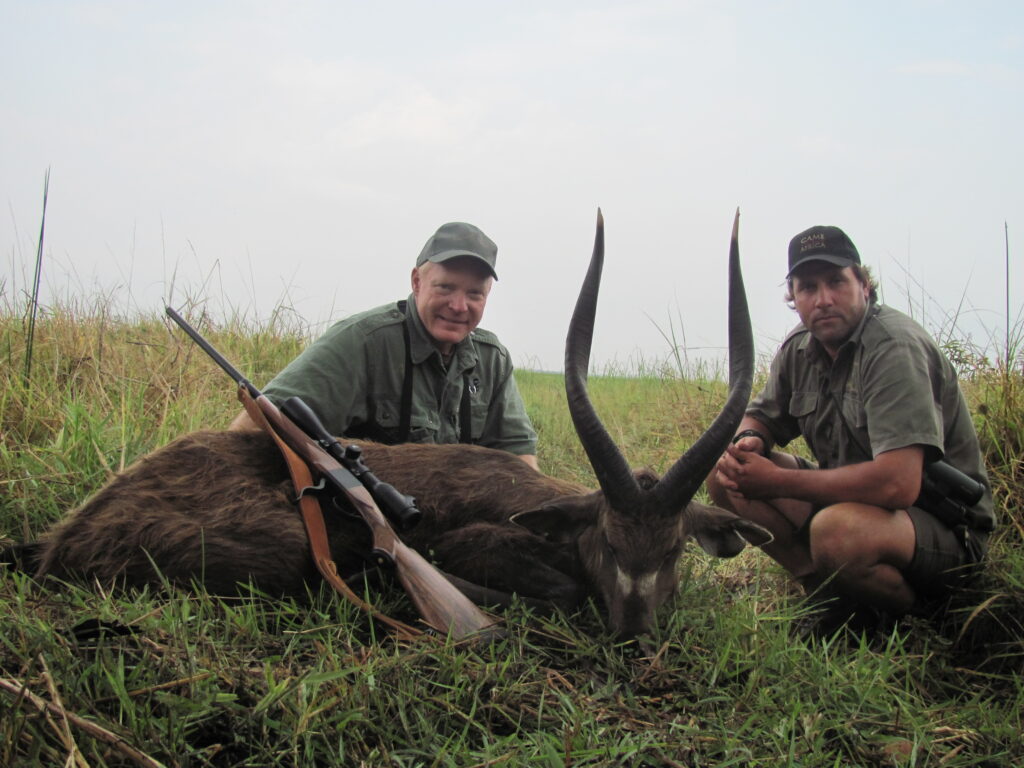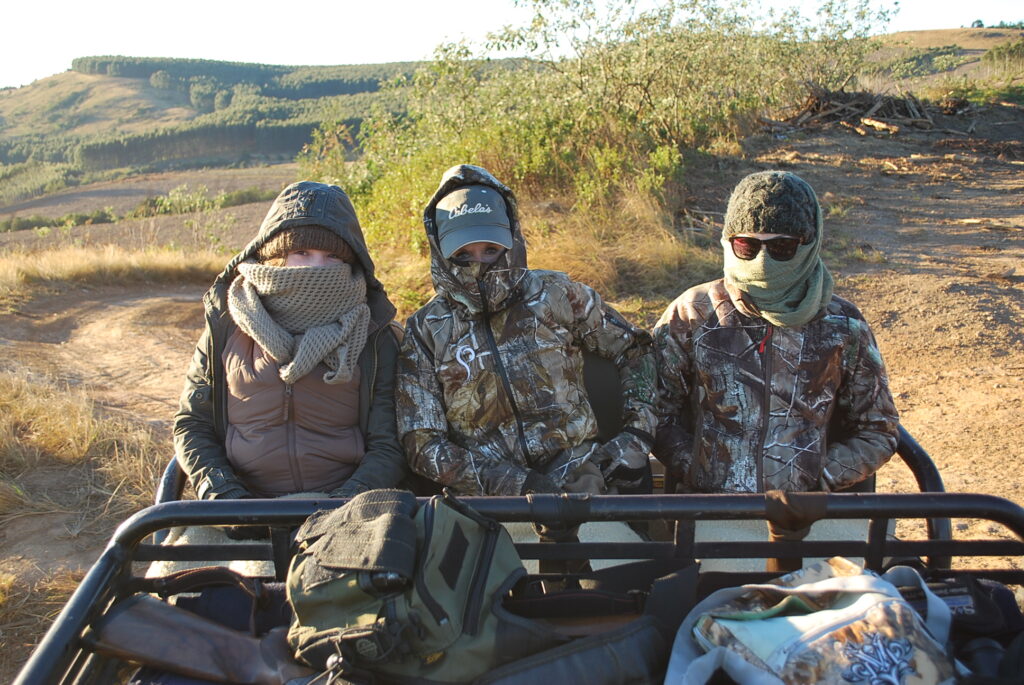‘Tis The Season For Safari Shopping
By Craig Boddington
In safari hunting, last-minute cancellations can and do happen. When they do, outfitters and their agents scramble to fill valuable dates, sometimes leading to significant discounts. However, this can’t be counted on and few among us can drop everything at a moment’s notice, no matter how attractive the opportunity. Most of us need to plan.
Chances are if you don’t book a hunt well ahead of time, you won’t be going hunting. Only you know when it’s best for you to get away, and only you know the kind of safari that fits your budget and offers the animals and hunting conditions you’re looking for. That being said, you need to start looking at your calendar and organizing your dreams now.
I can’t help you with that, but I can offer pointers on the typical planning and booking cycle, and advice on what constitutes the “safari season.” Outfitters have only so many available dates. These are “inventory,” to be sold, with deposits, as early as possible. Other limitations include seasons and game quotas, especially for the most limited or desirable species. An outfitter in Namibia may have nearly unlimited plains game available but is unlikely to have more than one or two leopard permits. No operator on the African continent has unlimited availability of any of the Dangerous Seven. Once spoken for, they are off the table, unless the aforementioned cancellation comes along.
With the most limited availability, lions and leopards (which are also among the most time-sensitive) are often booked at least three years out. This is unusual in safari planning. However, with rising costs and more limited quotas, it seems to me that more hunters are planning farther ahead. Today, good and popular outfitters are likely to have key dates booked two years out.
There is simply no better place on Earth to shop for a safari than at SCI’s Convention in Nashville. Make sure it’s on your calendar for Jan. 31-Feb. 3! Let’s be realistic: Outfitters from Central Africa are in the middle of their season. For the rest of the continent, the season is a few months out, but it’s not good business (and very nerve-wracking) for them to come to Convention with wide-open calendars. Ideally, outfitters would like to come to Nashville with current calendars mostly filled and concentrate sales on the following season. Obviously, this doesn’t always work, and it depends on the outfitter, area and situation. There will be good dates available in Nashville, and cancellations and postponements will also start to show up by then.
However, from a planning perspective, if you’re coming to Nashville for safari shopping, the wisest course is to shop for the next season. This will give you the best and widest selection of dates and outfitters. It also allows lots of time to shop for plane tickets, a new rifle tailored for the specific hunt and all the rest that safari dreams are made of.
There are exceptions. Few outfitters will be completely booked. Also, you shouldn’t rule out auction hunts! Some members come to Convention specifically to bid at our auctions (and God bless you for that). Most auction hunts have parameters for dates. Some are within specific windows; others simply say “available dates” in specific seasons (as in 2024, 2025, or both).
When considering auction hunts, it’s important to have flexibility. If you win the bid, your ideal dates may not be available. Also, it only takes two bidders to make a contest, so until the gavel falls there’s no guarantee you’ll get the auction hunt you have in mind. No worries, our auctions offer dozens of great hunts all over Africa and the rest of the world. To see what our generous outfitters have offered, check out auction.safariclub.org and start shopping!
As for ideal times to plan a safari, some African countries have specific hunting seasons. Botswana opens in April and ends from September to November depending on the hunting area. In Namibia, hunting season is from February 1 to November 30. Tanzania traditionally opens July 1 and runs through the end of the year. Many areas must close when the rains start so a lot of operators shut down by mid-November.

Many African countries don’t have set seasons and are technically open year-round. Practically, this rarely works; actual hunting is often controlled by rainy seasons, which dictate access. Throughout Southern Africa, perhaps April into November are safari months.
April and May can still catch late rains, and October gets hot. More important: Early in the season in Southern Africa, and through July in Tanzania, the cover is thick and green and visibility is reduced. And, since there’s lots of water in the bush, animals are widely scattered. On the other hand, the animals are undisturbed and almost none have been harvested since the previous season. Hunting is generally more difficult, but early is the best time for cats because prey animals are dispersed, making it harder for cats to make natural kills. In this situation, it is easier to get them on bait.
Later, as leaves fall and the bush opens up, hunting is generally easier because of better visibility and because animals concentrate around remaining water. With that said, cat hunters should remember it is more difficult to get cats on bait later in the season.

Central Africa, north of the Equator, is vastly different. Savanna hunting (Benin, Burkina Faso, Cameroon, CAR, Chad) is generally conducted during the short winter months of December, January and February. March and April get increasingly hot but are also good months. In North Africa: Morocco, Tunisia, and ibex in Sudan are generally hunted during the short winter.
Farther south, in the forest zone, most hunting is from April through June. For bongo, you want at least occasional rain to freshen tracks and make the forest quieter, but too much rain becomes problematic.

That leaves out some important safari countries, especially Ethiopia and Uganda. Uganda receives radical rains, long grass hampering hunting in certain months. Likewise, heavy fog can reduce visibility in the Ethiopian high country. In both countries, all my safaris have been from late February to early April.
A very important step in safari planning is to ask prospective outfitters about the best time for your most desired species! Understand that outfitters want to sell all their dates, so be specific. In many cases it doesn’t matter much. Here and there, some periods are better for certain animals.
Greater kudu usually rut in June and July. Elephant movement varies widely, depending on water and harvest season for local crops. In big, open areas, certain species are known to move only during certain periods. Some animals are especially sensitive to moon phases with sitatunga instantly coming to mind. In some areas, certain months are known to be windy. In Southern Africa, winter months are bitterly cold. Other months may be brutally hot. Hunting can be fantastic but may not be suitable for hunters with various health conditions.

Our Convention is great for safari shopping not only because it brings more outfitters together than anywhere else in the world, but because you can shop face-to-face and dig deep with detailed questions. Good shopping leads to happy hunting! See you in Nashville in January!

